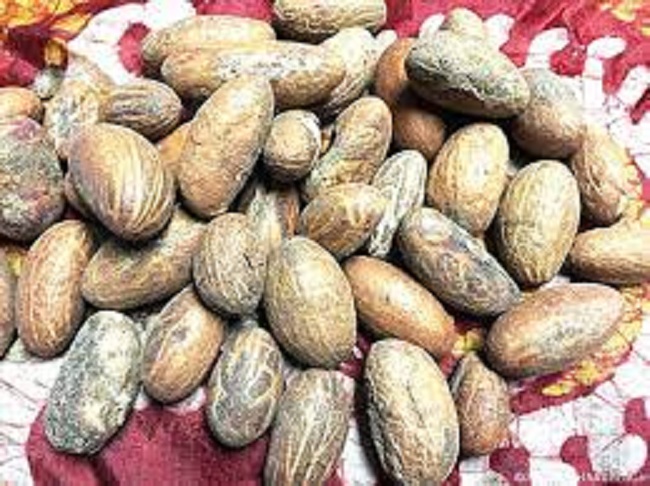Tuberculosis (TB) is without doubt one of the essential causes of mortality and morbidity globally. In accordance with the World Well being Organisation (WHO), Mycobactrium tuberculosis (Mtb) has contaminated roughly one-third of the world’s inhabitants, producing greater than 9 million new instances and two million deaths yearly; the remainder of the contaminated individuals stay asymptomatic.
Main issues related to present TB remedy, just like the period and complexity of remedy, leading to non-adherence to remedy, resulting in suboptimal response (failure and relapse), and the emergence of persistent Mycobacterium tuberculosis (multidrug-resistant tuberculosis MDR and extensively drug-resistant tuberculosis XDR) have made the seek for new medicine and different pure cures crucial.
Medicinal crops and herbs function leads for brand new medicine, holding potential for exploitation. Particularly, bitter leaf, bitter kola, Picralina nitida, Mitracapus villosus and Securidaca longipedunculata have been used within the remedy of TB an infection in conventional folklore drugs.
Generally known as ‘abeere’ in Yoruba and ‘Osi-Igwe’ in Igbo, Picralina nitida is utilized in conventional drugs for the remedy and administration of malaria, abscesses, hepatitis, pneumonia, diabetes, hypertension, malaria, pneumonia, and different chest circumstances. The seeds, that are often arduous, are often floor to a superb powder and added to meals resembling ‘ogi’ (pap) or taken as an infusion. Some take it with water, whereas others soak the seeds or its powder in coconut water and drink.
The leaves of Mitracarpus villosus are extensively utilized in West African conventional drugs for the administration of toothaches, amenorrhoea, dyspepsia, hepatic illnesses, venereal illnesses, sore throats, pores and skin illnesses, wound dressing, leprosy, in addition to neurological issues resembling complications. It’s known as ‘obuobwa’ in Igbo, ‘irawo ile’ in Yoruba, and ‘gogamasu’ in Hausa.
Securidaca longipedunculata, generally known as violet tree, is utilized in conventional drugs for treating sexually transmitted infections, hernias, coughs, fever, ascariasis, constipation, complications, rheumatism, abdomen aches, tuberculosis, ache, epilepsy, pneumonia, and pores and skin infections. It’s domestically generally known as ‘Uwar magunguna’ (Hausa), ‘ezeogwu’ (Igbo), and ‘Ipeta’ (Yoruba).
Extra importantly, specialists’ assessments of those medicinal crops, notably in opposition to persistent TB-causing germs, discovered bitter kola and bitter leaf to have higher efficiency in boosting the effectiveness of Rifampicin, one of many antibiotics used for treating TB.
Bitter leaf and bitter kola in an appropriate ratio exert synergistic anti-tubercular exercise and work together with Rifampicin to inhibit resistant tubercular bacilli progress.
The synergistic ratios of bitter leaf and bitter kola of 1:1, 2:1, 4:1, and eight:1 produced enhanced exercise. In truth, excessive concentrations of those crops within the blood interacted with Rifampicin to exhibit anti-tubercular exercise in a resistant pressure of the disease-causing germ.
This 2023 examine within the Worldwide Journal of Pharmaceutical Sciences and Analysis concerned researchers at Nnamdi Azikiwe College in Awka, Anambra State and the College of Nigeria, Enugu Campus in Enugu State.
For the examine, the researchers collected bitter kola seeds, Picralina nitida fruits, bitter leaves, the entire plant of Mitracapus villosus, and the bark and roots of Securidaca longipeduculata, and their chemical constituents had been extracted with ethanol.
Completely different concentrations of the extracts had been made and given alongside rifampicin to 2 teams of albino Wistar rats. It included males and non-pregnant females, with three animals per group weighing between 126 and 134 grammes.
Blood samples had been collected from the animals in every group at completely different occasions after remedy with the extracts and rifampicin and examined on eggs of the persistent TB pressure.
Whereas the extract of bitter kola and bitter leaf and Mitracarpus villosus displayed the flexibility to inhibit the expansion of tuberculosis in a dose- and time-dependent method, different herbs like Picralina nitida and Securidaca longipedunculata didn’t present exercise in opposition to M. tuberculosis.
Curiously, these two most promising herbs with the very best anti-tubercular exercise (bitter kola and bitter leaf) are generally used amongst many tribes within the south-eastern a part of Nigeria as hospitality edibles and within the preparation of an area delicacy, “bitter leaf soup”.
A preliminary examine achieved with the 2 crops on standard micro organism confirmed that the 2 crops’ extracts exhibited synergism and supplied a broad spectrum of antibacterial protection for a lot of illnesses, together with the remedy of pneumonia-like an infection attributable to Streptoccocus pneumonae.
Nevertheless, the hybrid combine will be formulated right into a palatable liquid dosage drink that may be taken with standard anti-tubercular medicine like Rifampicin for the remedy of resistant tuberculosis infections.
In accordance with the researchers, the bitter leaf and bitter kola extracts will be formulated right into a palatable liquid dosage drink that may be taken with standard anti-tubercular medicine like Rifampicin for the remedy of resistant tuberculosis infections.
“By presenting the preparation as a nutriceutical liquid drink, it is going to positively entice the affected person and encourage compliance. Such a nutriceutical drink having the ability to increase the motion of standard tuberculosis medicine might be an added benefit,” they said.
In accordance with them, utilizing the liquid drink hybrid with standard tuberculosis medicine will present a number of drug choices within the remedy of tuberculosis infections to restrict or stop resistant improvement.
